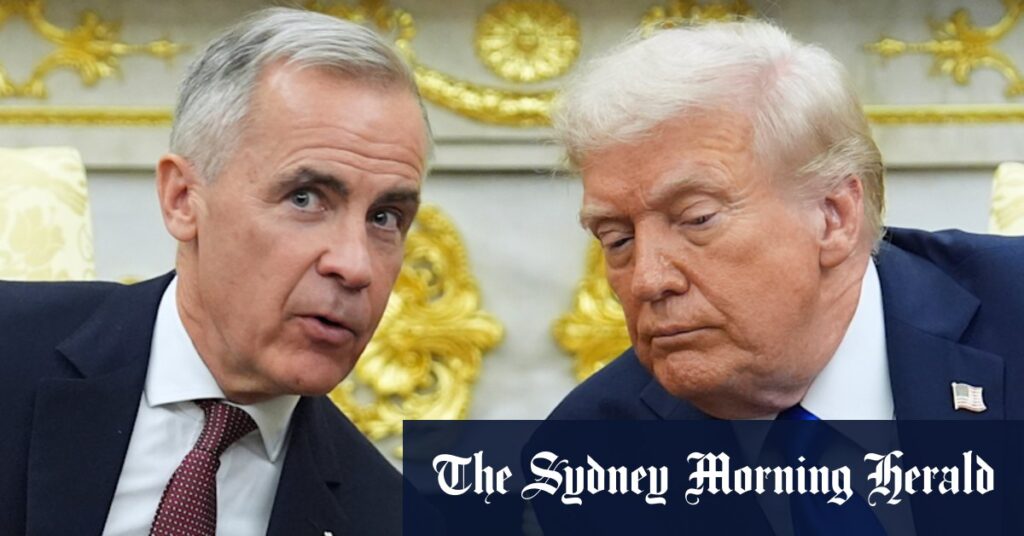
Relations between the United States and Canada have reached a new low as President Donald Trump abruptly ended trade negotiations, accusing Canada of meddling in American democracy with a “fake” television advertisement. The ad, which aired in the U.S., has sparked a diplomatic row between the two nations.
On Saturday, Doug Ford, Premier of Ontario, announced that the contentious ad would be withdrawn starting Monday to facilitate the resumption of trade talks. This decision followed intense discussions with Canadian Prime Minister Mark Carney, who is keen to resolve the escalating tensions.
Papal Concerns Over Diplomatic Rift
The diplomatic spat has even drawn the attention of Pope Leo XIV, the first American Pope, who expressed his concern during a Vatican meeting. “Two countries that were once considered the closest allies at times have become separated from one another,” Pope Leo remarked, highlighting the gravity of the situation.
The advertisement in question utilized audio and footage of former President Ronald Reagan criticizing tariffs in 1987. The Ronald Reagan Presidential Foundation and Institute is reportedly exploring legal options, arguing that the ad selectively misrepresented Reagan’s stance, which was originally against Japan’s unfair trade practices.
Trump’s Reaction and Legal Implications
In a late-night social media post, President Trump condemned the ad as “FAKE” and announced the immediate termination of trade negotiations with Canada. “CANADA CHEATED AND GOT CAUGHT!!!” he exclaimed, further accusing Canada of attempting to influence the U.S. Supreme Court’s upcoming decision on his reciprocal tariffs.
“Canada is trying to illegally influence the United States Supreme Court in one of the most important rulings in the history of our Country.”
The Supreme Court is set to rule on the legality of Trump’s tariffs, which lower courts have previously challenged. The tariffs remain in effect pending the high court’s decision.
Political and Economic Repercussions
Doug Ford had initially launched a $75 million ad campaign targeting Republican districts across the U.S., prompting accusations of election interference from Trump aide Dan Scavino. “Make no mistake about it, Canada is openly interfering in US elections by targeting Republican districts,” Scavino stated.
Ford’s decision to pause the ads after discussions with Prime Minister Carney reflects a strategic move to de-escalate tensions. “Our intention was always to initiate a conversation about the kind of economy that Americans want to build,” Ford explained, emphasizing the campaign’s impact on American audiences.
Canada is seeking relief from U.S. tariffs on steel, aluminum, and vehicles, which have adversely affected its economy. Prime Minister Carney, en route to the ASEAN and APEC summits, noted significant progress in negotiations and expressed readiness to continue discussions when the U.S. is prepared.
Future Trade Strategies and Global Relations
Carney also hinted at diversifying Canada’s trade relationships beyond the U.S. “We can’t control the trade policy of the United States,” he said, pointing to new partnerships with Asian economic giants as a strategic focus.
President Trump, scheduled to attend the ASEAN and APEC summits, plans bilateral meetings with leaders from Malaysia, Japan, South Korea, and China. These discussions could further shape the future of international trade relations amidst ongoing tensions with Canada.
The unfolding situation underscores the complexities of modern trade diplomacy, with implications that could reshape North American economic dynamics and influence global trade policies.





